#coreamod
Text
Bonus Thoughts! by CoreaMod

As I mentioned in my original review about How to Write an Autobiographical Novel by Alexander Chee, I really enjoy Chee’s online presence. I follow him on Instagram and Twitter and love seeing bits of his daily lives, news about his work, and any political matter he voices his opinions about.
Earlier during the pandemic, in an effort to support independent bookstores around the nation, he posted in Instagram stories that he’d personally recommend books if you submit the latest book you enjoyed. And he asked you to please order from the independent bookstore he frequents (Still North Books & Bar in New Hampshire) or any independent bookstore of your choice. I had just finished and learned a lot from On Immunity by Eula Biss, so I submitted that as my answer. He responded to my response, which made me very happy! He recommended me to preorder the new Eula Biss, Having and Being Had and read Nobody’s Looking at You by Janet Malcolm while I wait for the new Biss.
So I immediately ordered a copy of Nobody’s Looking at You from Still North Books & Bar. (The grey book with its back cover showing, photographed next to my iPad in the original review, is Nobody’s Looking at You. I hadn't read the book, and still haven't! but it was a sneaky way for me to express my excitement when I reviewed Chee's essay collection.) I loved my little interaction with Chee, which definitely made him a little more special author in my heart. Having and Being Had by Biss is also out now, and I'm excited to read it as well.
p.s. If you liked How to Write an Autobiographical Novel, I also recommend The Groom Will Keep His Name by Matt Ortile.
#Bonus Thoughts!#CoreaMod#Alexander Chee#how to write an autobiographical novel#Eula Biss#On Immunity#Having and Being Had#Janet Malcom#Nobody's looking at you#non-fiction#reviewblr#instagram#wht!#wehavethoughts!#Still North Books & Bar#the groom will keep his name#matt ortile#review#recommendations#to read#books#twitter#independent bookstore
6 notes
·
View notes
Text
Japanese Breakfast's Jubilee Review!
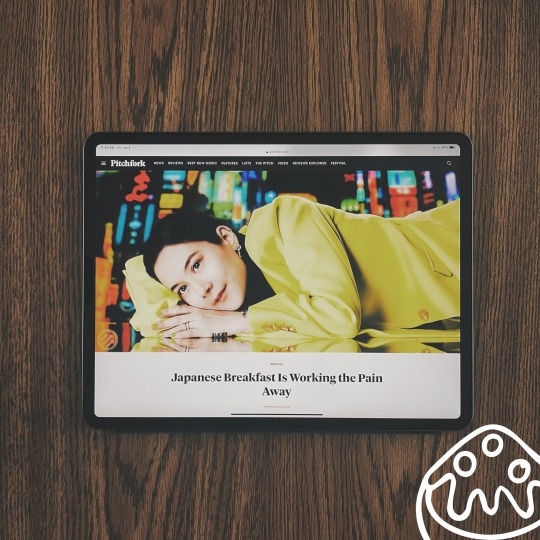
Album title: Jubilee
Artist: Japanese Breakfast (Michelle Zauner)
Label: Dead Oceans
Release date: June 2021
Rating: 5/5 Bingsu’s

I’ve been seeing lots of Japanese Breakfast (Michelle Zauner, a Korean American artist) content in my various social media feeds leading up to Crying in H Mart’s publication in April. It’s a memoir written by Michelle Zauner herself, about the grief she struggled with after the passing of her mother, and how she found comfort in making Korean food during that dark period. I have had the book with me since its publication date but haven’t been able to gather the courage to delve into it. I’m still emotionally getting myself ready to be able to read it.
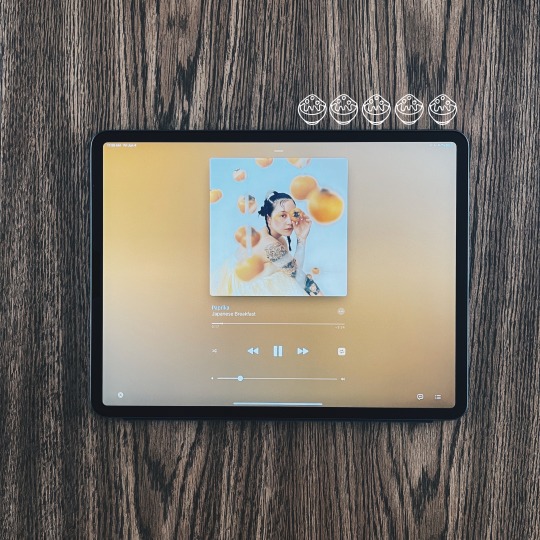
While I’ve been doing so, her new album Jubilee also dropped. A Pitchfork interview calls Jubilee “her biggest- and brightest-sounding album yet.” Even though I usually only listen to dark, somber, sad music, I was happy to hear that “after writing two albums and a book about grief, (she) felt very ready to embrace feeling.” And I’m absolutely enjoying the album, including cheery songs like “Paprika.” (It’s such a great opening song!) While there are many uplifting songs, there are also a couple darker songs like “In Hell” and “Tactics.” From “Paprika,” a song like a “surreal parade,” to “In Hell,” which is “about putting my dog down and thinking, Why couldn’t we just have this option when my mom was dying?,” the entire album is a worthy ride through all kinds of feelings. I hope you’ll give it a listen.
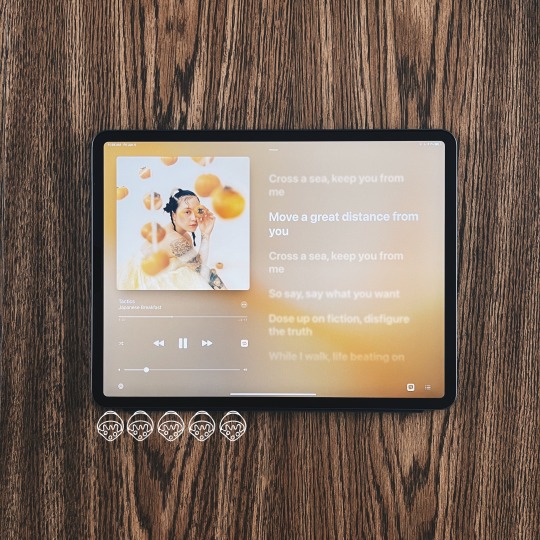
And I love the persimmon-themed aesthetics for her newest album as well. The Pitchfork interview says persimmons are “symbols of bitter fruit maturing into something sweet.” Which is just perfect. Adding to that fitting metaphor, for me personally, the fruit elicits such strong feelings of nostalgia. They are the epitome of my longing, homesickness, and reminiscence for the country I’ve deliberately chosen to leave and yet miss terribly to my core. Persimmons are such a common fruit in Korea but it’s unbelievably difficult to find in the US. I assume you could find better-quality persimmons in big cities like LA or NYC, but the few I’ve come across are over-priced ones at Whole Foods or some tiny ones found in a sad little basket at my local Asian market. Anticipating persimmons at the end of the long and grueling summer, spotting persimmons in a store and taking in the change of the season, peeling and eating them on an autumn evening are the things that only exist in my past. I have found a different rhythm to my life in a new home, but I’ll always have that lingering wistfulness with me. So yes, long story short, seeing persimmons all over her album cover and merch made me feel all the feelings. Especially, I love that there are persimmons hanging in the background. Just like how persimmons are hung to be made into 곶감 (dried persimmons). It's quite electrifying to see the love for something that's deep in your bones represented by somebody else who shares the same love.
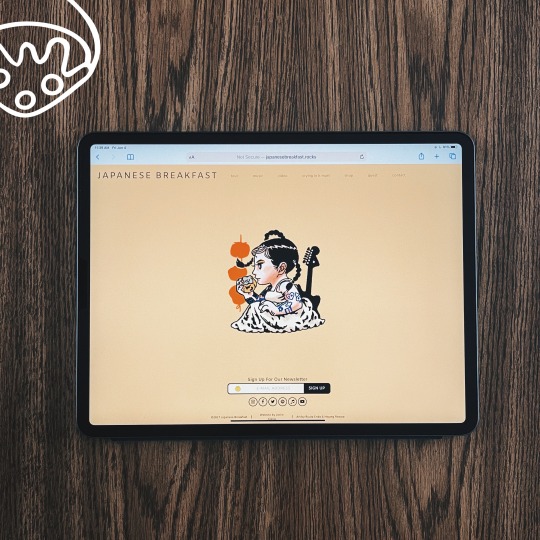
p.s. Zauner’s Korean identity has become an integral part of her public persona. Why the name Japanese Breakfast, then? Trevor Noah had the same question. Zauner says: “I started the band as a side project in 2012 or 2013 with no idea that it would grow into what it is now or that I’d be talking about my Korean identity so much and I just saw a picture of a Japanese breakfast on the Internet and thought “that sounds nice!””
#Japanese Breakfast#Michelle Zauner#Jubilee#music review#music#reviewblr#CoreaMod#wehavethoughts!#wht!
2 notes
·
View notes
Text
I Am Hera Review!
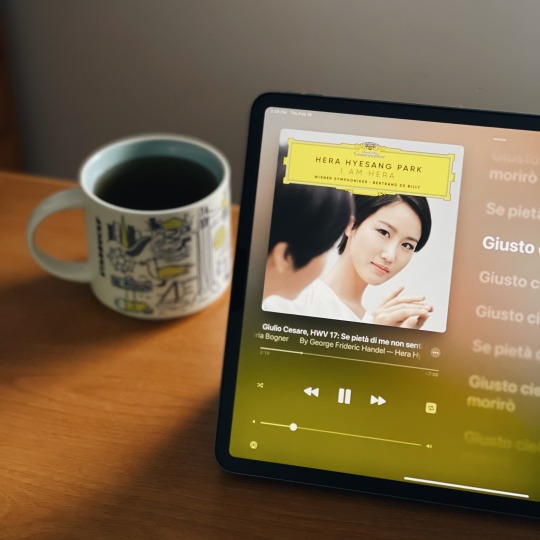
Album title: I Am Hera (more info here)
Singer: Hera Hyesang Park
Label: Deutsche Grammophon (DG)
Release date: November 2020
Rating: 5/5 Hotteok’s

Summary: A debut album by soprano Hera Hyesang Park. The album includes songs written by Gluck, Pergolesi, Handel, Mozart, Rossini, Puccini, Bellini, and especially, two Korean songs by Joowon Kim and Un-Young La.
No content warnings apply.
Note: I’m not that knowledgeable in classical music so I won’t be commenting on any musical technicality or quality in the review, but rather, will be focusing more on introducing the artist and talking about the impact the album had on me personally.
Review: As many other people did, I spent most of 2020 alone in my apartment. To pass time, I tried to stream many virtual live events, ranging from book readings and workshops to ballet and musical performances. Among them was a live concert by Hera Hyesang Park to celebrate her signing with the classical music record label Deutsche Grammophon (DG). Unfortunately, the event is not available for replay but DG did post one song from the event on their Youtube page, if you’re interested in listening.
The classical music sphere is heavily centered around white musicians in Europe and the field has a long way to go to be inclusive. Hera is the first Korean singer to sign with DG (and the second Korean musician to sign with DG; the first was pianist Seong-jin Cho) and I’m so proud of her. The fact that she is trying to be herself, as her album title “I Am Hera” suggests, is hopeful to me. She said in an interview that when she first went to the US, she tried to assimilate and act like an American, but she realized that she needs to love her own identity. She picked the album title from that transformative experience. It’s something that most expats in the U.S., including myself, can relate to.

Besides the traditional classical music by Gluck, Pergolesi, Handel, Mozart, Rossini, Puccini, and Bellini, the album also includes two Korean songs: Like the Wind That Met with Lotus (연꽃 만나고 가는 바람같이) and Psalm 23 (시편 23편). In DG’s 120+ years of history, it is the first time that Korean songs were included. It was refreshing and exciting to see Korean songs representing our existence, in the same album with songs by classical artists whom people conventionally think of. At the live event I mentioned earlier, she sang Like the Wind That Met with Lotus and another Korean song, Leaning On Time (시간에 기대어). I couldn’t find a video of Hera singing it, but here is one sung by Haewon Lee. It’s one of the most beautiful songs I’ve heard and when I saw non-Korean-speaking listeners commenting on the beauty of these songs during the live event - I must say, I welled up a bit.
I would like to briefly note something about Like the Wind That Met with Lotus. It is a poem made into a song. The original poem was written by Jeong-ju Seo (서정주). He worked for Imperial Japan while Korea was colonized by Japan and also wrote poetry praising Japanese Imperialism. This serves as another reminder that while I was happy that she chose to include Korean music to be able to express her true self, complicated, painful, and unresolved bits of history are entangled in that song. It makes me think about the work that needs to be continued regarding decolonization and reparation.
I will leave you with Hera’s performance in a traditional Korean house. Her singing Purcell in a place surrounded by the kiwa architecture is a quite pleasant juxtaposition.
Happy listening,
CoreaMod
#CoreaMod#Hera Hyesang Park#classical music#album review#music review#Deutsche Grammophon#music#I Am Hera#musicians of color#korean culture#korean music#wehavethoughts!#reviewblr#soprano#music recommendation#wht!#jeong-ju seo#purcell#haewon lee#korean#like the wind that met with lotus#leaning on time#psalm 23#Seong-jin Cho#joowon kim#Un-Young La#puccini#bellini#mozart#gluck
4 notes
·
View notes
Text
Prison Playbook (슬기로운 감빵생활) Review!
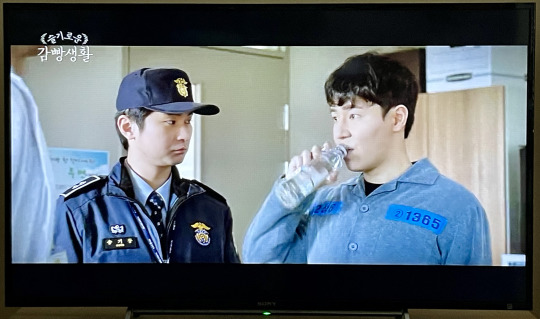
Prison Playbook (슬기로운 감빵생활)
Dark comedy
Originally aired on tvN (2017). Distributed by Netflix in the U.S.
Written by: Jung Bo-hoon (정보훈)
Directed by: Shin Won-ho (신원호)
Rating: 2.5/5 Hotteok’s

This post CONTAINS spoilers for Prison Playbook.
Content Warnings for Prison Playbook: violence, rape/sexual assault, homophobia, drug addiction, death penalty (mentioned)
Summary: Kim Je-hyuk is a talented baseball pitcher who recently signed a contract with Major League Baseball in the U.S. With his departure to Boston imminent, he witnesses a man attempting to sexually assault his sister. He confronts the perpetrator and saves his sister but is convicted of assault and is sent to prison. It follows Je-hyuk’s eventful journey as he tries to make a new life in the prison. The show also revolves around Je-hyuk’s cell mates and the correctional officers at the facility.
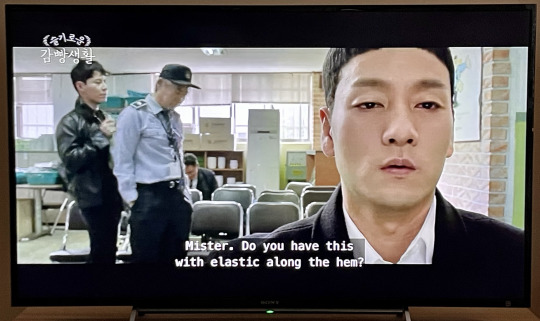
Earlier this year, I watched Hospital Playlist and absolutely loved it. I enjoyed how the show focuses more on telling the stories of the characters rather than solely being focused on the plot. Then I learned that Hospital Playlist is a second show in the Wise Life series, and there is a show called Prison Playbook which is the first in the series. (Prison Playbook and Hospital Playlist’s Korean titles, 슬기로운 감빵생활 and 슬기로운 의사생활, mean Wise Prison Life and Wise Doctor Life, respectively.) While I wait for Hospital Playlist’s second season to come out next year, I decided to check out Prison Playbook, also directed by Shin in 2017.
Kim Je-hyuk (김제혁) is an extremely famous and beloved baseball player (baseball is very big in South Korea). He finds himself in jail overnight, after he attacks a man who attempted to sexually assault his sister. Against the public’s assumption that he would be released on the grounds of self-defense, the court convicts and sends him to prison. He has to learn how to live a new life in the prison, on the verge of losing everything.
How Je-hyuk makes his comeback despite all of the struggles, is quite an amazing story. Additionally, similar to the structure of Hospital Playlist, Prison Playbook also invests a lot in telling many different characters’ stories, rather than focusing only on Je-hyuk. I enjoyed this format that lets you get to know each character more in depth. And the show does a good job with its dark comedic components. It manages to talk about prison life with levity, humor, and warmth. I think the main story that they wanted to tell is that a life in the prison may not be so much different from our own lives, in a way that you can grow through the relationships you build with people around you. And it does send this message well. But even though I binge watched the show, I’m only giving it only 2.5 out of five hotteok’s, mainly because of how it handles its female characters, drug addiction issues, and homophobia.
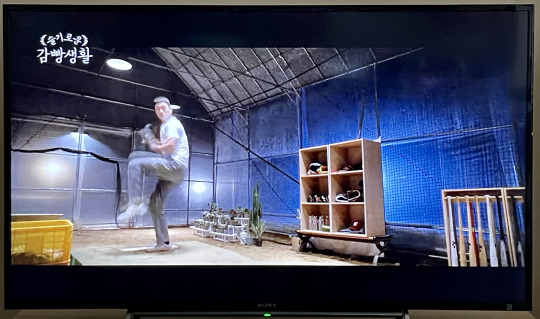
I guessed that the show would be heavily focused on its male characters because we are following a cis-gendered male character in the South Korean prison system which still operates on the binary gender system. But I was still disappointed in the roles that the female supporting characters had in the show. Kim Ji-ho, Je-hyuk’s girlfriend, is a typical ‘good’ girlfriend. She supports Je-hyuk throughout his baseball career and his prison life. Not that she shouldn’t, but she does everything that is expected from a good girlfriend/wife in the Korean society. There is even a word for that in Korean: 내조, which literally means the wife’s help (from ‘inside’, as her place is to be at home) for her husband so he can succeed (in the outside world, where he belongs). And a woman is often praised or criticized for her good or bad 내조, especially when she is in a relationship with a public figure. While the male characters go through their own redemption or reconciliation, there is not much of character development for Ji-ho. The only main struggles that she faces in the show are (temporary) break-ups with Je-hyuk – the first time because he is too busy playing baseball, and the second time because Je-hyuk tries to let her go after he goes to prison. And while the set-up that they knew each other for most of their lives and how Ji-ho is the daughter of Je-hyuk’s baseball coach who passed away, is supposed to make everything more meaningful and sentimental, can we talk about their age difference? To some extent I do believe that age is just a number, but it also seems like Korean shows and movies are usually too okay with telling stories about a man who falls in love with a younger, underage woman, waits for her to turn 18 to start dating (ex. Parasite, and many more). To be fair, it seems like Je-hyuk starts to have feelings for her only after she goes to college maybe? But the flashbacks showing how Ji-ho was a little kid when Je-hyuk was about to go to college did make me feel a bit uncomfortable. And there are also Je-hyuk’s sister and mother, and Kim Min-chul’s daughter, who do not deviate at all from the roles that they are expected to play as good sister, mother, and daughter.
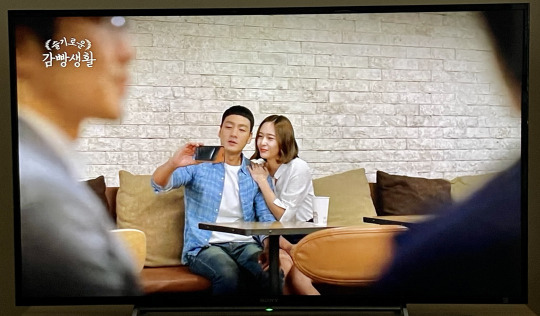
How Yoo Han-yang’s character, who is a gay drug addict, is portrayed is another issue I had with the show. There are multiple scenes where they mention that Han-yang’s drug addiction is due to his lack of will to stop using drugs. And his addiction is portrayed as evil. The show really let me down at the end when Han-yang is finally released from prison, but there is his seller waiting for him, and Han-yang gets high and gets caught by the police right away. (It was a setup by the police to tempt him to use drugs again so they can take him back.) His story ends with his parents and boyfriend waiting for him in an empty restaurant. I really don’t understand what message they wanted to tell with this ending for him.
I was quite surprised to see Han-yang and his boyfriend in the show, since the Korean media often avoids anything that are not patriarchal heterosexual relationships. But even though the show had a chance to contribute to normalizing LGBTQ relationships, all it does is explicitly show the society’s bigotry and prejudice towards LGBTQ members. For example, Yoo Jeong-woo, one of Han-yang’s cell mates, accepts Han-yang as a friend but says that he cannot accept or understand Han-yang dating a man. One could possibly argue that the show attempted to show the ugly side of the Korean society as criticism, but to me it did not seem that way and the show did a poor job with their only queer character.
Overall, if you would like to watch the show, I would not stop you from watching it, but I will not actively recommend the show to people. It has a compelling storyline and it will make you care about each character by the end of the show. However, I cannot ignore its bias and prejudice against its female and LGBTQ characters. It also has an uneducated and quite hateful stance on drug addiction issues.
- CoreaMod
#prisonplaybook#prison playbook#kdrama#tv show#tv review#WHT!#wehavethoughts!#CoreaMod#prison playbook spoilers#spoilers#drama#prisons in media#LGBT themes#drug addiction in media
7 notes
·
View notes
Text
How to Write an Autobiographical Novel Review!
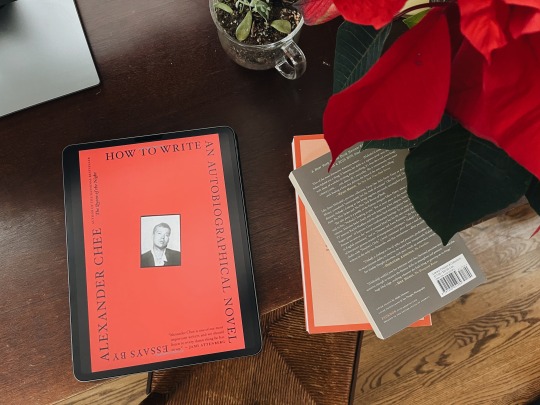
How to Write an Autobiographical Novel
by Alexander Chee
Publisher: Houghton Mifflin Harcourt
Publication date: 04/17/2018
ISBN-10: 1328764524
Print length: 289 pages
Website
Rating: 5/5 Hotteok’s

Summary: How to Write an Autobiographical Novel is an essay collection by Alexander Chee. He shares life events ranging from his teen years to current life: growing up as a biracial person in Korea and in the U.S., working as an activist in the LGBTQ community in San Francisco, struggling to make ends meet as a young writer, publishing his first book and much more.
Content Warnings for How to Write an Autobiographical Novel: the author shares his childhood sexual trauma and discriminations that he faced as a gay man.
Alexander Chee is a Korean American queer writer who has written the novels Edinburgh and The Queen of the Night (both of which I haven’t read yet but are definitely on my To-Be-Read list). I had heard about him through other Korean American writers, who all described him as a generous, kind-hearted, and talented author, colleague, and mentor. Of course, I do not know him personally, but through the small aspects of his life and thoughts that he shares through social media platforms, I could understand what they might mean. For example, I was finding warm joys watching his tiny kitchen scrap gardens grow.
So I finally set aside some time to read his essay collection, How to Write an Autobiographical Novel. It was in May 2020, two months into the COVID-19 lockdown in the U.S. Looking back, little did I know that the pandemic would keep me in isolation for the entire year, but back then I was already pretty devastated and shattered from helplessly watching the life I had envisioned for 2020 disappear right in front of my eyes. I was in search of a voice that could be with me through those dark days. Not something grand that could fix the state I was in, but something that could simply just sit with me. And I cautiously thought Chee’s words might be that.
The title of the book may make you think that this is a book with tips, guidance, and tutorials on how to write one's autobiographical novel. However, it is not that. It is a collection of essays with autobiographical events with the author's thoughts and insights on his personal life, as well as his nation's political events. Though, a short essay with the same title is included in the collection, which almost reads like a poem about the experience of writing an autobiographical novel.
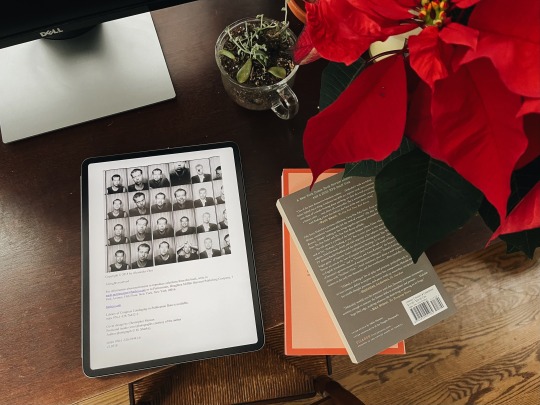
In this collection, he writes honestly and beautifully about his life experiences, ranging from his stay in Mexico as a young gay man (“The Curse”), Taro-reading in college while trying to navigate through the grief from his father’s death (“The Querent”), his writing class with Annie Dillard at Wesleyan (“The Writing Life”), and cater-waiting for William F. Buckley, who had written an op-ed advocating “for the tattooing of people with AIDS on their buttocks and wrists” (“Mr. and Mrs. B”).
Each essay left me so overwhelmingly emotional that I had to take a break, especially the essay “1989”. In it, he shares the story about his participation in the march in San Francisco “to block traffic to protest government inaction in the face of the AIDS epidemic” on October 6, 1989. He ends the essay describing how he was standing at an ambulance with his unconscious and injured friend. He was told to put his hand on the ambulance so the police won’t arrest him. He writes:
“I stand there, my hand on the ambulance, and a television news crew arrives and asks me to describe what I’ve seen. As I tell the story, I keep my hand on the ambulance the entire time. After they leave, I think about how, up to now, I have thought that I lived in a different country from this. But this is the country I live in, I tell myself, feeling the metal against my fingers. This is the country I live in.”
Through his powerful storytelling, I almost felt like I could feel the metal too, as I read that last paragraph over and over again. Going through the unbelievable pain and grief at the end of May this year in this nation, I kept thinking about this essay. Tony Morrison wrote in 2015 that difficult times are precisely “when artists go to work... We speak, we write, we do language. That is how civilizations heal.” ("No Place for Self-Pity, No Room for Fear,” The Nation, March 23, 2015) There is still so much grief, and so much work to be done, but I’m grateful that those like Chee will be with us through their writing as we move toward healing.
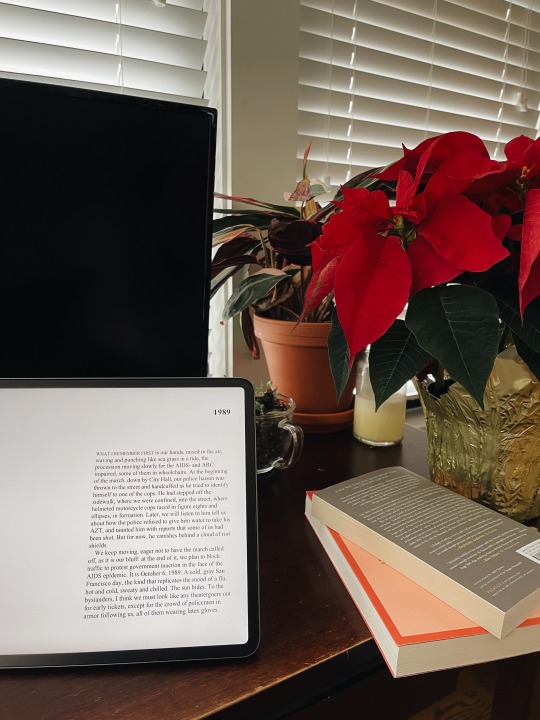
In an interview with Subway Book Review, Chee mentioned that during this pandemic, he is holding onto words from authors who have gone through difficult times and picked East Goes West as the book he was relating to. (East Goes West is written by the first Korean American novelist, Younghill Kang. You can read more about Chee’s thoughts on East Goes West here.) To me, Chee’s How to Write an Autobiographical Novel was that book. If you are looking for a book that can help you navigate your own feelings, especially after this strange, lonely, and challenging year, I would highly recommend this book.
tldr: The author Roxane Gay writes on Goodreviews that this book is “nuanced, sophisticated, intelligent, intimate, sincere essays about writing, identity, and being alive” and I cannot agree more.
p.s. I have also read good reviews about the audiobook version narrated by Daniel K. Isaac. I will definitely be checking it out, too!
p.p.s. Here is another excerpt from the book. In the essay “Girl” he talks about Halloween in 1990 when he spent the night wearing makeup, a shoulder-length blond wig, a black turtleneck and leggings. Attaching as a postscript as I cannot fathom any words to accompany it, but would just like anybody reading this to feel all the feelings as I did.
“In this moment, the confusion of my whole life has receded. No one will ask me if I am white or Asian. No one will ask me if I am a man or a woman. No one will ask me why I love men. For a moment, I want Fred to stay a man all night. There is nothing brave in this: any man and woman can walk together, in love and unharassed in this country, in this world—and for a moment, I just want to be his overly made-up girlfriend all night. I want him to be my quiet, strong man. I want to hold his hand all night and have it be only that; not political, not dangerous, just that.”
#CoreaMod#book review#essay review#non-fiction review#Korean American author#queer author#How to Write an Autobiographical Novel#Alexander Chee#activism#LGBTQ experiences#reviewblr
5 notes
·
View notes
Text
We Have a New Mod!
Hello WHT! friends,
We are proud to welcome to the group CoreaMod !! Here’s their bio:
Hello, I am CoreaMod! I grew up in South Korea before I moved to the US. In the past few years, I’ve been working a lot to reconnect with the Korean culture as an effort to embrace and love my identity. As part of that journey, I will be reviewing anything related to South Korea, ranging from books, (plant-based) recipes, snacks, movies, TV shows, music, etc. I'm deeply interested in animal rights, environmental issues, gender equality, and LGBTQ+ rights. I will try my best to pick the materials that reflect my interests.
My rating system will be out of five bingsu’s in the warmer months, from April to September. Bingsu is a shaved ice dessert, and you can be creative with toppings! In the colder months, it will be out of five hotteoks. Hotteok, a brown-sugar-filled pancake, is one of the winter street foods that I miss from Korea.
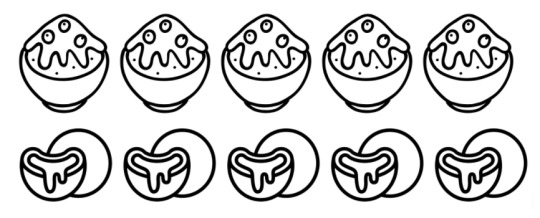
Check out CoreaMod’s first post tomorrow!
#wht!#wehavethoughts!#review blog#CoreaMod#bingsu#hotteok#south korea#recipes#movies#tv#k-pop#animal rights#environment#gender equality#LGBTQ+ rights
6 notes
·
View notes
Text
Kkanpoong Tofu Review!

Kkanpoong tofu by the Korean Vegan
Full written recipe
Video recipe
Video with a story (This will make your heart swell with all the feelings.)
Publication date: July 2020
Rating: 5/5 Hotteok’s

Summary: Crunchy tofu recipe with spicy sauce
No content warnings apply.
I have been following the food blogger The Korean Vegan for a while on Instagram. She veganizes Korean food and shares the recipes along with beautiful photographs of her food. She taught me that it is not difficult to veganize Korean food, and you still can honor and celebrate your culture while still holding up the values (in my case, not harming animals for my consumption) that are important to you.
She has recently been gaining popularity on Tiktok, where she merges food videography with poignant personal stories. I admire how open-hearted she is. I often think about the power of vulnerability (Brené Brown) when I watch her content. Her videos will make you cry, but at the same time, hungry. You can read more about how “her 60-second recipes will make you less racist” in this article.

This week, I tried one of her most popular videos: kkanpoong tofu. (It is spelled kkaMpoong in the recipe but the ㄴ in 깐풍 should be transliterated to N.) If you already have the basic ingredients such as soy sauce, chili pepper powder, flour, and sweetener, this recipe doesn’t require many ingredients and it is very affordable. The only additional items that I had to purchase were a block of tofu ($2), scallions ($1), peppers ($0.50), and carrots ($1). And I only used a portion of scallions and carrots, so it only cost me ~$3.50. Vegan dishes are not expensive to make, contrary to the common misconception. Vegan cheese, vegan meat, etc. can be very expensive, but I only rarely purchase them to satiate my occasional craving. Most of the time, I use ingredients such as beans, lentils, tofu, fresh produce in season, etc which are budget-friendly.

Modifications:
I used a shallot instead of red onion, serrano peppers instead of Korean green chili peppers, and Korean Pancake Mix (which is basically seasoned wheat flour) instead of potato starch. As she mentions, you can use regular flour if you are okay with gluten and don’t have potato starch. I didn’t use mirin or dried chili. I used maple syrup as the recipe calls for, but usually Korean recipes use 올리고당 or 물엿.
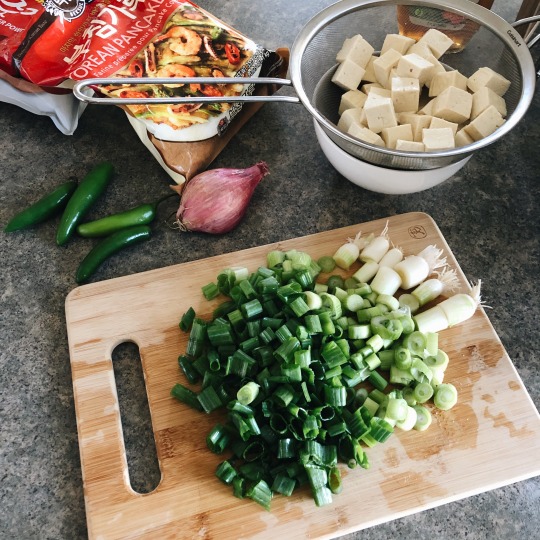
The key to this recipe is to get as much water out of tofu as you can, so that it will be crispy. She uses a tofu press, which I don’t have. But a nice trick is, you can microwave tofu for 2-3 min. Then you let it strain while you prepare the vegetables. This will help you get the water out of tofu in a short time without much hassle.
I often complain about how it takes me double, triple the time to finish cooking than the recipe says. But this one truly was fairly simple and quick; it took me about 30 minutes. (The most time-consuming part is frying the tofu cubes.)
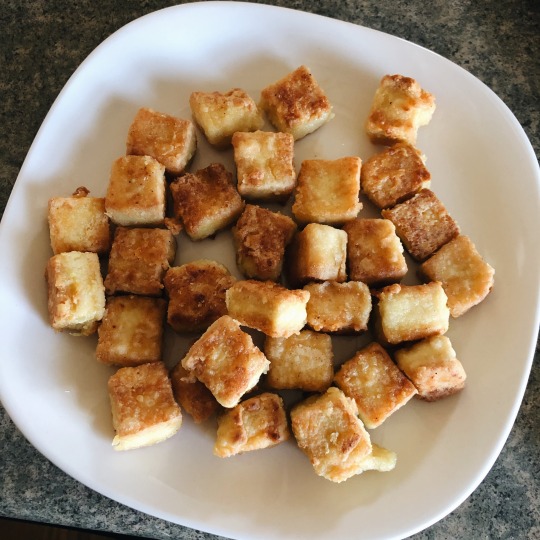
And the dish was amazing. The recipe deserves all the hype it’s been getting. The sauce is a perfect combination of spicy and sweet. It was worth standing in front of the stove and tending each and every cube to make sure they were all cooked through, because the tofu cubes turned out very crunchy. If you are looking for an affordable, plant-based Korean food with rich flavors, I would highly recommend this recipe.
I ate them with rice and sparkling water. Since it is cooked in a good amount of oil, I recommend a carbonated drink to go with it. I can also see them as a wonderful late-night snack with a glass of beer. Even with chili powder and serrano peppers, it was not as spicy as I’d hoped, so next time I’ll throw in some Thai chili peppers.

(Icon by Kaylen Yul Lee from the Noun Project)
#koreanfood#recipe#vegan#veganrecipe#tofu#koreanvegan#wehavethoughts!#wht!#food#korean#the korean vegan#Kkanpoong#Kkampoong#coreamod#review blog#recipe review#korean food#spicy tofu#crunchy tofu#recipereview#veganize#veganized
4 notes
·
View notes
Text
Love, Robot Review!
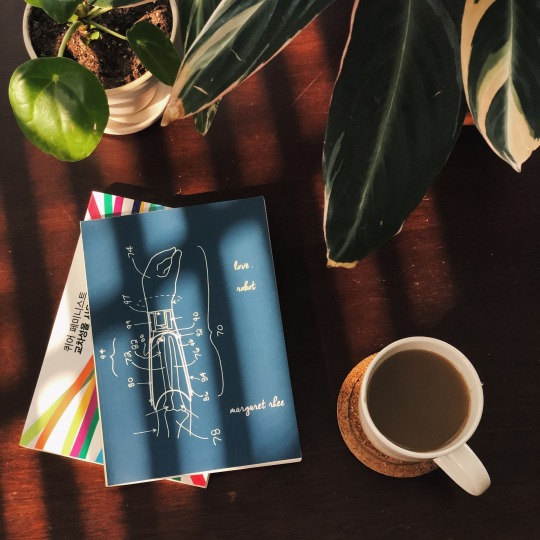
Love, Robot
Author: Margaret Rhee
the operating system, 2017
Rating: 5/5 bingsu’s

Summary: A poetry collection by Margaret Rhee, a Korean American poet. She writes about love between humans and robots in a science fictional world.
Content warning: No content warnings apply.
Hello, I am CoreaMod and this is my first post for We Have Thoughts! I will be reviewing media related to South Korea, ranging from books, (plant-based) recipes, movies, TV shows, music, etc. Since this is my first post, I’d like to share a little bit about why I chose to review Korea-related media.
I grew up in South Korea before I moved to the U.S. a dozen years ago. For the first few years here, all I wanted was to be able to fit in. And I tried hard. I thought I needed to submerge myself in the 'American' culture. So I stopped reading in Korean, stopped watching Korean shows, and never learned to cook Korean food. My goal was to assimilate, assimilate, assimilate. I felt satisfied and accomplished when I shed my accent and people started to compliment me for my accentless English. And I took it as a big compliment when people said that I pass as an American. I was relieved in my ability to blend in. I do not blame my young self for thinking so. Being the quiet Asian girl who does not speak English in high school was not easy and I needed to survive through that period. But I abandoned so much of my true self in doing so. I only realized in the past few years that I lost so much of what defined me. What I should have never let go of. What I should have carried dearly with me. I resonate so much with the following section from Matt Ortile’s book, The Groom Will Keep His Name, about his immigrant experience.
pg. 28 I tried to drain myself of my Filipinoness to fit the role of a model American minority so much that I ran on a cultural deficit. Though habits and traditions and cuisines and languages alone do not comprise an identity, they make up a big part of it. Severed as I was from my family and homeland, to deprive myself of what made me Filipino only exacerbated my feelings of separation and lack, how I felt unrooted in America and uprooted from the Philippines.
It was up to me to reframe the facets of my Filipinoness as nourishing things, to reclaim them from my internalized colonialism, this parasite that made a host of me.
I started to slowly understand that I equated being American to being white. And I am learning to unlearn the internalized white supremacy, colonialism, and imperialism. It will be a life-long journey, but I want to stay committed to it. In an effort to reclaim my identity, I have been intentionally familiarizing myself with the Korean culture through various media. So when I was invited to We Have Thoughts!, I figured Korea-related posts would be a good fit for me.
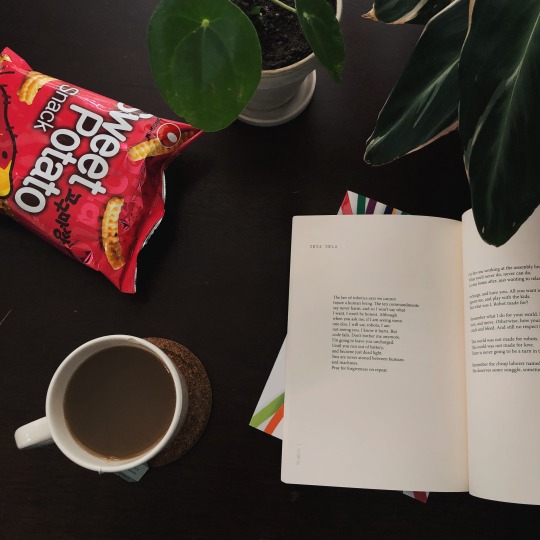
My first review is on the poetry collection Love, Robot by Margaret Rhee (published in 2017 by the operating system). Rhee introduces herself as “a poet, scholar, and new media artist” and she writes “with attention to social issues and technology.” Isn't it such an interesting intersection? This is well reflected in Love, Robot. If my fading memory is correct, I first came across her poem through Asian American Writer’s Workshop’s Instagram story. It shared a bit from the poem ‘Coca Cola’ and I still remember the pang I felt when I read it.
pg. 60 Coca Cola
The law of robotics says we cannot
Injure a human being. The ten commandments
say never harm, and so I won’t say what
I want. I won’t be honest. Although
when you ask me, if I am seeing some-
one else, I will say, robota, I am
not seeing you. I know it hurts. But
code fails. Don’t bother me anymore.
I’m going to leave you uncharged.
Until you run out of battery,
and become just dead light.
Sins are never atoned between humans
and machines.
Pray for forgiveness and repeat.
I marveled at how Rhee uses words like screws, circuits, motors, cords, and wires to talk about love. Heart wrenchingly beautiful love, that is. She takes objects that are conventionally considered cold, soulless, and standardized and transforms them into substances of emotion, desire, and despair. Additionally, she has intricately woven race and sexuality into her poems, as in ‘Radio Heart’.
pg. 37 Radio Heart
(…)
Race is not programmed yet
So as you trace around my eyes
My lips, the round contours of my face
You say, you are so human, all human.
I not only enjoyed her unique perspective that comes from her Korean American background, but also appreciated the freedom that comes with talking about love between humans and robots. That transcendental love, embracing whoever you are, and whoever you love.
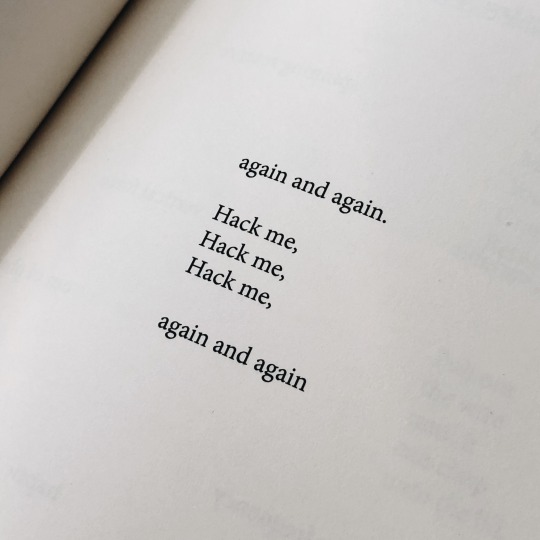
I'm grateful to have gotten to know writers who write for readers like me, like Margaret Rhee, Matt Ortile, R.O. Kwon, Alexander Chee, Cathy Park Hong, ... I'm excited to talk more about them in the coming posts.
pg. 82 say, robot
murmur to me, it is the middle of the night.
your maker may not know
we all deserve a song that is untranslatable
If you are interested in an untranslatable love song, this poignant collection may be for you.
CoreaMod
(Icon by Victoruler from The Noun Project)
#CoreaMod#korea#nicole chung#love robot#poetry#poem#mediareview#book review#book#quotes#literature#reviews#WHT!#wehavethoughts!
5 notes
·
View notes
Text
The Uncanny Counter Review!
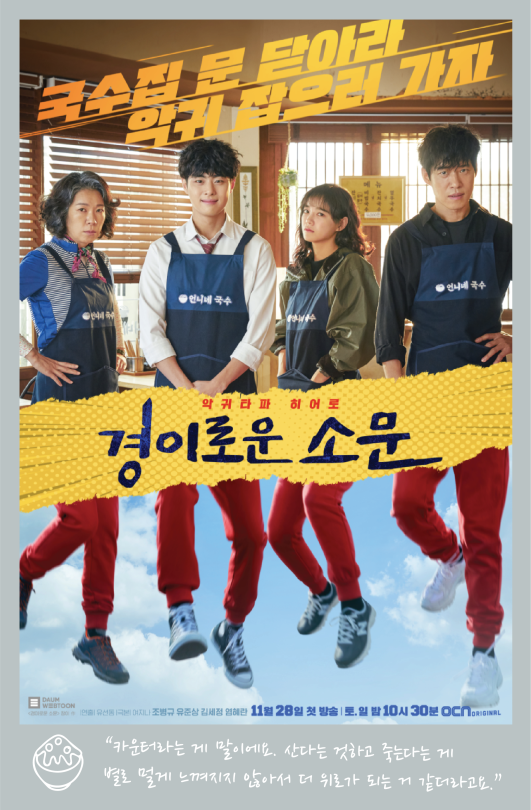
The Uncanny Counter (경이로운 소문)
Genre: Fantasy, Drama, Thriller TV show
Originally aired on OCN (2020). Distributed by Netflix in the U.S.
Written by: Yeo Ji-na (여지나)
Directed by: Yoo Seon-dong (유선동)
Rating: 4.5 bingsu’s

This post CONTAINS spoilers for The Uncanny Counter.
Content Warnings for The Uncanny Counter: violence, bullying
Summary: Based on the webtoon with the same name*, this show follows SoMun’s adventure where he transforms from a high school student to a Counter. The Counters have the power to sense and fight against evil spirits. They work as a team to tackle evil spirits who try to capture human bodies.
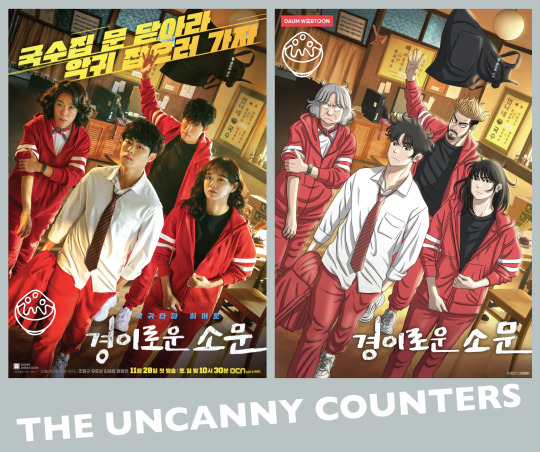
I absolutely enjoyed this Korean superhero show. The show differs itself from traditional superhero shows to the point that I’m a bit hesitant to call it one. While the characters have the usual elements of other superheroes such as being selected to serve the common good and living with the painful past, many of their aspects are new and unique.
To give a brief background about the show, there are evil spirits who have the power to detect people who are evil spirited, take over their body and soul to strengthen their power. I found this perspective interesting - that they are not after innocent beings, but rather it follows the like-attracts-like design. The more people they possess, the stronger they get.
The Counters are essentially brought back to life from death. They were all in a coma (except for SoMun, watch the show to find out how he becomes a Counter!) but are given consciousness and strong power in exchange for accepting the destiny of being a Counter and using their power to fight the evil spirits. They are connected to their partner spirits who reside in Yung, where heaven, hell, and afterlife coincide.
It was refreshing to see a superhero show that is set in a non-Western world, Korea to be specific, and own all the Korean-ness as well. It didn’t feel like the show was trying to imitate the superhero archetype set by the Western media. The Counters run a mom-and-pop noodle restaurant when they are not fighting against evil spirits. They are not famous or even known to the public, and actually, one of their priorities is to not get discovered by the lay people. And they wear full-on sweats to their missions - not the fancy kind, but the kind that resembles the PE uniform worn by Korean students, the kind that the Korean media usually portrays ‘lazy unemployed people’ in. I’ve put quotation marks there because I believe it is problematic to portray them in that stereotypical manner without addressing the societal and structural barrier, but that’s a whole other story.
What makes the show really special is that the sentiments of 정 and 한 run through the whole show. (You can read more about Jeong/Jung 정 here, and more about Han 한 here.) The feelings of deeply tangled affection and sorrow dictate the storyline, not only giving the plot validity but also inviting the audience to really empathize with the Counters.
I also loved the strong female superheroes, Hana (played by Kim Se-jeong 김세정) and MaeOk (played by Yeom Hye-ran 염혜란). What I appreciated is they were strong, compassionate, and powerful female superheroes who do not wear tight suits or show off their sexiness. There is nothing wrong with doing so, but often female characters are sexually objectified and the sexiness is added without adding any depth to the story. I felt much pleasure watching women who seem like they could be my own mother or sister, or my next door neighbor, fully being their ‘regular citizen’ selves but also doing all the superhero stuff.
And I loved loved loved how they redefined the meaning of family. Especially in the Korean culture, families related by blood matter a lot. However in the show, people who lost their loved ones, who are struggling with their own grief or who are isolated from the community come together and develop new familial bonds. They define their own living family, who they can depend on and who they can trust with their lives.
One shortcoming I felt was that this new family still resembles the traditional ‘normal’ family, the only form the Korean society (and many others as well) seem to be comfortable in accepting. One that consists of a father figure, a mother figure, and children. At some point I would love to see media that imagines families beyond this ‘normal’ structure and show how deep, inseparable, and beautiful such families can be.
CoreaMod
*The webtoon and the TV show have the same name in Korean but it was translated differently into English. The webtoon translated to Amazing Rumor and the show to The Uncanny Counter. The word 소문 has dual meanings here: It is the main protagonist’s name, and in Korean, it can also mean rumors.
#the uncanny encounter#korean show#kdrama#korean tv#wehavethoughts!#wht!#netflix#review#the counters#superhero#superhero show#소문#Yeom Hye-ran#염혜란#Kim Se-jeong#김세정#korean society#정#jeong#jung#한#han#SoMun#Yeo Ji-na#여지나#Yoo Seon-dong#유선동#OCN#fantasy#thriller
18 notes
·
View notes
Text
Japchae by Korean Bapsang Review!

Japchae by Korean Bapsang
Recipe: https://www.koreanbapsang.com/japchae-korean-stir-fried-starch/
Published: 11/25/2020
Updated: 01/23/2021
Rating: 5/5 Hotteok's

Summary: Korean sweet potato starch noodles seasoned with soy sauce and sesame oil, mixed with various vegetables
No content warnings apply.
It was my first time trying a recipe from the blog Korean Bapsang and I must say, I absolutely enjoyed the recipe and her writing. She starts by explaining what Japchae means and talks about a couple variations of the dish. She also describes how the dish is usually served: “as an appetizer or a side dish or over a bed of rice to make it a main dish.” I appreciate how she provides context so that people who are unfamiliar with the dish can understand how to enjoy it. Throughout the recipe, she indicates what each ingredient’s name is called in Korean. This was another minor but important and meaningful detail I appreciated.
To my pleasant surprise, she even explains how to make a vegan version! Though it’s a very simple modification (use more mushrooms or add tofu instead of the meat), I was glad to see she had vegan readers in mind. I, of course, went with the vegan version.
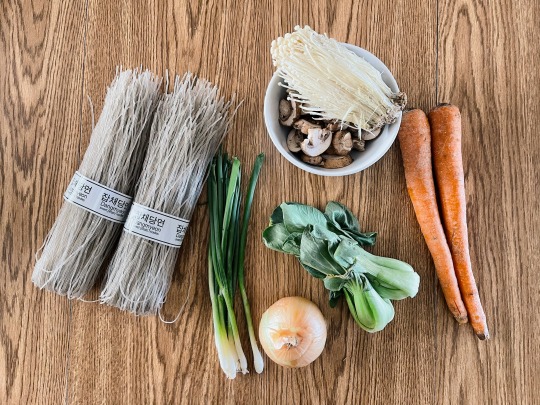
As she writes, usually Japchae is made with carrots, onions, scallions, beef/pork, shiitake mushrooms, and spinach. However, the name means “mixed vegetables” so you can use whatever vegetables you would like. It’s a really good recipe to use up any vegetables that have been sitting in your fridge. I used carrots, onions, scallions, baby bella mushrooms, enoki mushrooms, and bok choy.
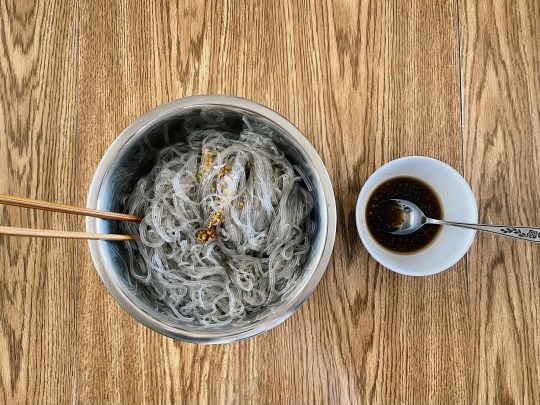
Besides using a bit different vegetable selection, I stuck to the recipe truthfully. The end result was delicious! I would definitely use this recipe again. I've tried to make Japchae before, but this one turned out to be the best. When I make this again, the only modification I’d make is to use fewer noodles. I underestimated the amount of noodles I was cooking and there was an explosion of noodles in the kitchen. So my household will be eating Japchae for a while ;)

Note to self: use only one bunch of dangmyeon in the future!
CoreaMod
#koreanfood#recipe#vegan#vegan recipe#wehavethoughts!#wht!#food#foodie#korean#corean#japchae#chapchae#review blog#recipe review#korean food#veganize#veganized#reviewblr#korean bapsang#vegetables#dangmyeon#noodles#stir-fry#sweet potato starch#coreamod
2 notes
·
View notes